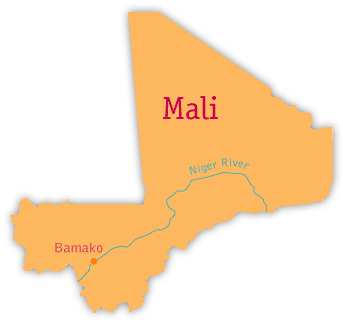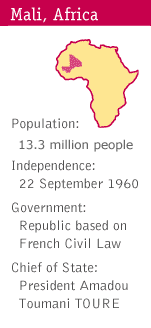
Environmental Issues:
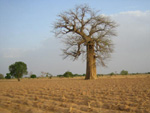 Desertification
Desertification
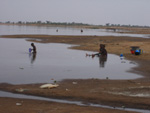 Lack of potable water
Lack of potable water
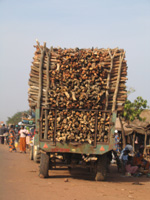 Limited fuelwood
Limited fuelwood
Mali, West Africa
Mali is one of the poorer countries in the world. It ranks 175 out of 187 countries in the UN Human Development Index, with 77.1% of Malians earning less than $2 a day. Enrollment in Malian schools is only 35%; only 24% of the country is literate. Without education, Malians are unable to exit their cycle of poverty. Mali faces numerous health challenges related to poverty, malnutrition, and inadequate hygiene and sanitation. Development is obstructed by a vast array of social, health, and economic problems.
Economic activity is largely confined to areas irrigated by the Niger. Most Malians are in subsistence living situations with 80% of the labor force relying on farming for a livelihood. The negative effects of poverty, disease (mostly from contaminated water) and lack of education present significant impediments to entrepreneurial activities. Thus, many communities become dependent upon government agencies or foreign aid.
A significant portion of Mali’s capital and foreign exchange is spent on large power plants, fuel and electrical distribution systems. Most villages, however, are not even within range of a utility distribution system. Mali is markedly plagued by limited access to energy services and heavy reliance on traditional bio-mass.








